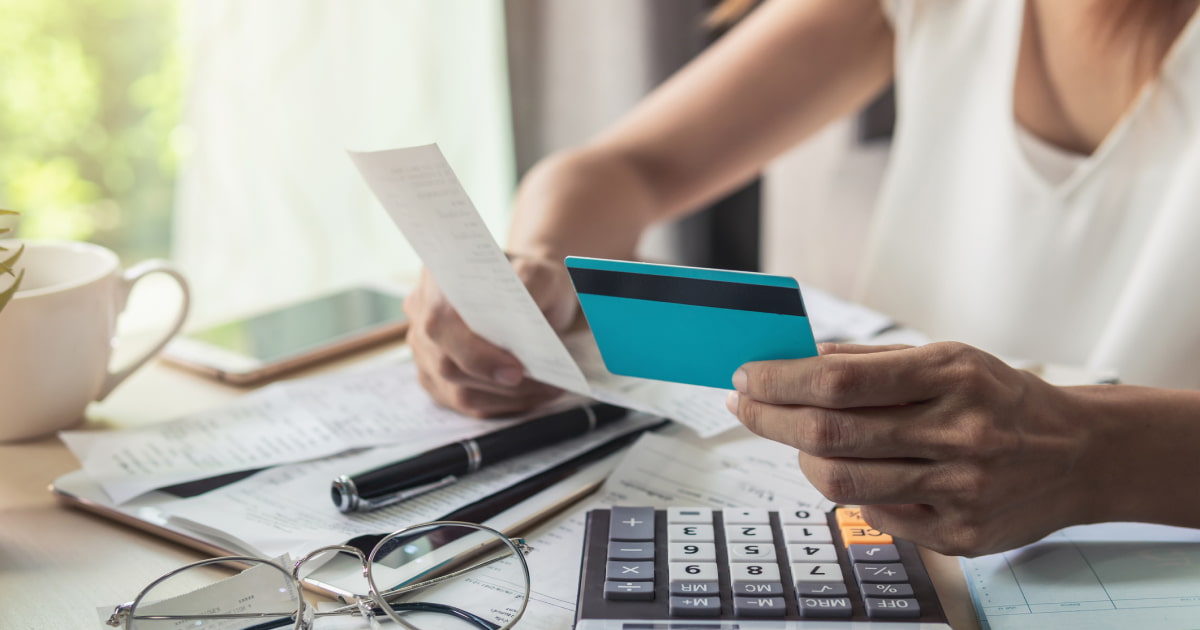If you have debt, you’re not alone. According to a recent study from the Experian credit union, the average American has $90,460 in debt, whether from credit cards, personal loans, mortgages, and/or student loans. This amount can drastically vary depending on your age group, with Gen Z (ages 18 to 23) holding the lowest average at $9,593 and Gen X (ages 40 to 55) with the highest at $135,841.
Debt is often inevitable and can be frustrating to manage. But we’re here to make paying off debt easier by sharing helpful tips to get you started and use in the future.
Before starting, it’s important to list your debts, including three key details:
- the type
- remaining balance
- interest rate
While uncomfortable, seeing the complete picture of your financial situation will help you determine what to prioritize and what a realistic plan looks like.
Similarly, we’ve talked before about the benefits of having a budget and how it’s a vital resource for meeting your financial goals. Knowing how much money you have to spend each month, and your top expenses, allows you to see what you can put toward your debts.
From there, you can implement one (or more!) of the following best practices for paying off debt faster.
Easy Steps for Paying Off Debt
Pay More Than the Minimum
Paying more than the minimum on your debts is one of the best ways to make a significant impact. In the end, this will help you save money by reducing the principal balance and, thus, the interest that will accrue as a result.
Experian created an example to help explain this further: If your credit balance is $5,000 and your interest rate is 18.9%, making the minimum payment of $200 would add thousands of dollars to your total and take almost three years to pay off. You’d also wind up paying an additional $1,410.23 in interest. But if you can pay $460.54 a month instead, you can pay off the balance in a year and only pay $529.69 in interest–saving yourself $880.54.
Obviously, only pay more if your budget allows, and don’t feel like you need to do this for every debt you have.
Pay Off Certain Debts First
This strategy for paying off debt can go one of two ways: paying off your more expensive debt first, or the least expensive. In the former, you can get rid of “bad debts” (ones with higher interest rates, for example) more quickly to help save yourself money.
In the latter, you'll be able to remove a smaller amount of debt from your record—but that’s not nothing. If you’re just starting, this method can make the process seem more manageable and free up your finances to put toward more expensive ones. Paying off one of your debts will also boost your confidence and encourage you to keep going.
Like the previous tip, this one requires you to be strategic and realistic about your financial situation. In either case, you’ll also want to ensure you’re still paying the minimum amount on any other debts you have so you don’t damage your credit score.
Consolidate Your Debts
Has your life changed significantly since you first took on a specific debt? Maybe you’re a few years out from graduating college and have a stable job with a better salary than when you first took on your student loans. Or maybe you’ve paid off the credit card debt that caused the interest rate on your mortgage to be so high.
Consolidating these debts under a new loan can give you a lower interest rate, a lower monthly payment, and/or a shorter payoff period. This also puts all your debts in one place, so you do not have to make payments to different lenders month over month.
Taking a Look at Your Financial Habits
Smart financial habits, no matter how big or small, can improve your financial confidence and pay off your debt faster. If you find yourself overspending and accumulating large amounts of debt, as a result, figure out if there are any changes you can make. Is it leaving your credit card at home when you go shopping or removing it from your online wallet? Have you been following your budget as strictly as you could?
Don’t forget to recognize what you do well and figure out how to further that skill. Maybe you have some saving techniques that allow you to purchase items you’ve had your eye on for a while. How can you transfer that practice toward saving to pay off debts? Knowing these things about yourself will set a strong foundation for your entire financial life.
Find Help Paying Off Debt at First Seacoast Bank
We understand that debt can be stressful, no matter the amount. As your trusted financial partner, the team at First Seacoast Bank puts your needs first and helps you build a plan for paying off debt that works for you. When you’re ready to take that step, give us a call or send us a message, and we’ll help you get going.
